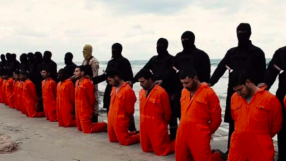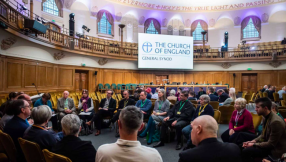Bishops and clergy in the Church of England have observed a two-minute silence to "lament" the suffering of the Windrush generation and reflect on wider issues of racism in society.
The silence falls on Windrush Day, which marks 72 years since the Empire Windrush arrived at Tilbury Docks in East London, bringing hundreds of migrants from the Caribbean to help rebuild Britain after World War Two.
They came at the invitation of the British Government but many experienced hostility and racism upon their arrival, an experience that extended to churches.
Bishops were today asking their Twitter followers to join in the silence.
It follows a minute's silence held during the Church's national online service on Sunday, which was led by Father Andrew Moughtin-Mumby, the Jamaican-born Rector of St Peter's Church in Walworth, south east London.
During the service, he recalled the racism experienced by Anglicans from Barbados who were once barred from entering the church and forced to worship elsewhere because of their colour.
"Many who came to England experienced horrible racism in society, but also in our parish churches," he said.
He called racism a "stain on the soul" of the Church of England as he said that more work needed to be done to eradicate it.
"And there is still racism in the Church today, and it is a very serious disease and a sin which I believe each one of us is called to work hard and work urgently to end," he said.
Earlier this year, the Church of England apologised for racism towards the Windrush generation in its parishes.
General Synod, the Church's parliamentary body, unanimously passed a motion in February offering a "lament, on behalf of Christ's Church, and apologises for, the conscious and unconscious racism experienced by countless black, Asian and minority ethnic (BAME) Anglicans in 1948 and subsequent years, when seeking to find a spiritual home in their local Church of England parish churches, the memory of which is still painful to committed Anglicans who, in spite of this racism from clergy and others, have remained faithful to the Church of England and their Anglican heritage".













